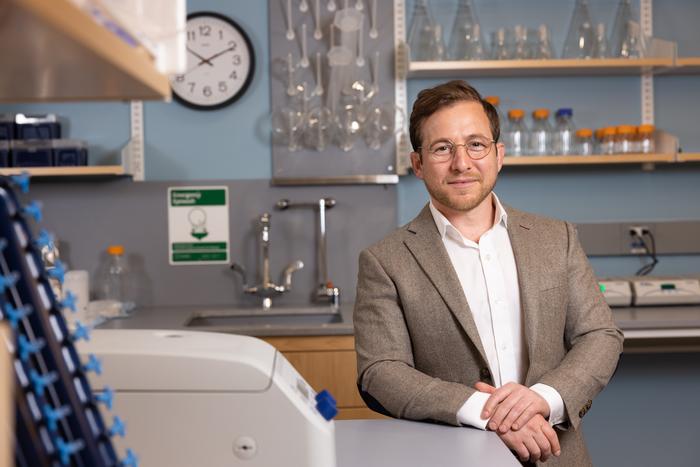A groundbreaking advancement in cancer diagnostics has emerged from Mass General Brigham researchers who have developed a liquid biopsy blood test with the capability to detect human papillomavirus (HPV)-associated head and neck cancers with unparalleled accuracy. This innovative test, named HPV-DeepSeek, vastly outperforms current diagnostic techniques, achieving a striking 99% sensitivity and specificity when diagnosing cancer at initial clinical presentation. Such precision extends even to the earliest stages of the disease, marking a transformative development in the early detection and management of these cancers.
HPV is implicated in approximately 70% of oropharyngeal cancers in the United States, a number that has been increasing more rapidly than other head and neck cancers. Unlike cervical cancer, which has established early screening protocols tied to HPV, no analogous early detection strategies exist for HPV-related head and neck malignancies. Typically, diagnosis hinges on the appearance of symptoms, by which point the disease may have progressed considerably, often necessitating aggressive treatment regimens with substantial side effects.
The technical innovation underlying HPV-DeepSeek is its utilization of whole-genome sequencing targeting the complete HPV genome in circulating tumor DNA shed into the bloodstream. Existing liquid biopsy assays typically focus on one or two discrete viral sequences, limiting their sensitivity and scope. HPV-DeepSeek, by analyzing multiple viral fragments alongside nine other blood-derived features, allows for a comprehensive molecular signature of HPV-driven tumor presence, enhancing detection capabilities significantly beyond current commercial platforms.
In a rigorous study involving 152 patients with HPV-associated head and neck cancer and an equal number of healthy controls, HPV-DeepSeek demonstrated superior sensitivity and specificity compared to alternative biopsy and clinical diagnostic methods. The direct comparison revealed that HPV-DeepSeek’s comprehensive sequencing approach can detect tumor DNA fragments reliably even in very early disease stages, positioning it as a potentially vital tool for prompt clinical intervention.
Of particular note is the assay’s potential role in pre-symptomatic screening. In a separate, currently preprint study, HPV-DeepSeek was applied to blood samples from 28 individuals who developed HPV-associated oropharyngeal cancer years after collection, alongside 28 matched controls. The assay identified 79% of future cancer cases while producing no false positives among controls, with some positive results appearing nearly eight years before clinical diagnosis. This evidence reveals that the natural history of these cancers involves protracted tumor DNA shedding into the bloodstream, which can now be leveraged to detect malignancy at a fundamentally earlier and more treatable stage.
The implications of these findings are profound. Early detection enables clinicians to contemplate less invasive, personalized treatment paradigms, potentially sparing patients from the significant morbidity associated with current standard treatments. Dr. Daniel L. Faden, lead investigator, emphasizes that a minimally invasive blood test of this sensitivity can revolutionize standard care pathways by transitioning from symptom-driven diagnostics to proactive cancer detection.
The MAESTRO test was evaluated in a cohort of patients with non-HPV-related head and neck cancers, revealing its predictive power for recurrence and survival outcomes. Patients harboring detectable residual disease post-surgery exhibited significantly higher risks of cancer relapse and mortality, highlighting the assay’s value in risk stratification and guiding tailored follow-up care.
These liquid biopsy approaches represent a paradigm shift in oncologic diagnostics. By using whole-genome sequencing and broad genomic interrogation, such assays can identify hundreds to thousands of tumor-specific DNA fragments amid the vast background of non-mutated DNA circulating in the bloodstream. This “needle in a haystack” capability dramatically enhances the sensitivity and specificity compared to traditional methods that target only a small number of mutations or viral fragments.
While promising, challenges remain in determining optimal clinical workflows for implementing HPV-DeepSeek and similar technologies. Follow-up regimens for patients with positive liquid biopsy results must be carefully designed to ensure appropriate diagnostic confirmation, monitoring, and timely intervention. Moreover, the psychosocial and economic impacts of early cancer screening in asymptomatic populations require thorough consideration through expanded clinical trials and health systems research.
Funding from the National Institute of Dental and Craniofacial Research supports continued investigation into refining these assays and evaluating their impact. As research progresses, collaborations among experts in oncology, molecular diagnostics, genomics, and bioinformatics will be essential to translate these scientific advances into routine clinical practice, ultimately improving outcomes and quality of life for patients facing head and neck cancers.
This breakthrough by Mass General Brigham, detailed in a forthcoming issue of Clinical Cancer Research, underscores the promise of liquid biopsy assays backed by comprehensive genomic interrogation as next-generation tools in cancer detection and personalized treatment. The work represents a significant stride toward the long-sought goal of noninvasive, early diagnosis that could save countless lives by arresting disease well before it manifests clinically.
Subject of Research: People
Article Title: Direct comparison of alternative blood-based approaches for early detection and diagnosis of HPV-associated head and neck cancers
News Publication Date: 20-May-2025
Web References:
https://aacrjournals.org/clincancerres/article/doi/10.1158/1078-0432.CCR-24-2525/762404/Direct-Comparison-of-Alternative-Blood-Based
https://www.medrxiv.org/content/10.1101/2024.01.04.24300841v1
https://aacrjournals.org/clincancerres/article/doi/10.1158/1078-0432.CCR-25-0307/762435/Early-Postoperative-Minimal-Residual-Disease
References:
Bryan, ME et al., “Direct Comparison of Alternative Blood-Based Approaches for Early Detection and Diagnosis of HPV-Associated Head and Neck Cancers,” Clinical Cancer Research, DOI: 10.1158/1078-0432.CCR-24-2525
Sim, M et al., “Early postoperative minimal residual disease detection with MAESTRO is associated with recurrence and worse survival in head and neck cancer patients,” Clinical Cancer Research, DOI: 10.1158/1078-0432.CCR-25-0307
Image Credits: Credit: Please credit Mass General Brigham
Keywords: Head and neck cancer, Cancer screening, Oncology, Sexually transmitted diseases
Tags: breakthrough in cancer diagnosticscancer sensitivity and specificityearly detection of HPV-related cancershead and neck cancer diagnosticsHPV-DeepSeek blood testhuman papillomavirus detection methodsinnovative cancer screening techniquesliquid biopsy advancementsnon-invasive cancer testingoropharyngeal cancer statisticstransformative cancer managementwhole-genome sequencing in oncology





